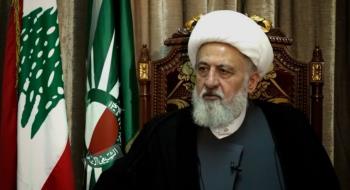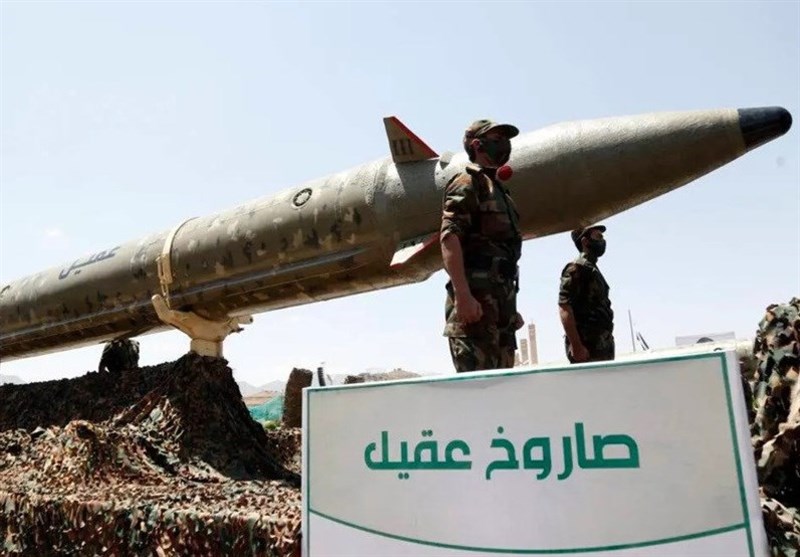Alwaght- With announcement of ceasefire for Gaza war that had involved other branches of the Axis of Resistance, now the eyes are on other anti-Israeli fronts to see what comes next to them.
One of these hot fronts is Yemen that has not walked back even an inch from its pro-Palestinian stances and even leaders of Ansarullah Movement have warned Israel that if it violates the ceasefire deal, they will resume their operations against the occupied territories.
Given the significance of the Red Sea to the Israeli regime and intelligence and military dominance of Ansarullah, a question presents itself: Will the confrontation between Israel and Ansarullah stop after the ceasefire?
Although observers had previously predicted that tensions on the Yemeni front would also subside with the cessation of the war in Gaza, recent clashes between Sana'a and Tel Aviv, and the claim of Israeli officials to attack Yemeni territory, indicate that the conflict between the two sides will continue.
International shipping company executives, who have suffered from the Red Sea conflict over the past year, confirm that the Red Sea trade route will remain very risky even after the Gaza ceasefire.
The reason why Tel Aviv may continue its confrontation with Yemen is due to concerns about the growing power of Ansarallah in one of the most strategic regions in the world.
Realizing the power of the Yemenis over the past year, the Israeli leaders have concluded that they must take serious measures to deal a blow to Ansarallah.
The Israelis believe that in the past decade since Ansarallah took the power in Yemen, the efforts of the US and the Arab sheikhdoms of the Persian Gulf to destroy this movement have not yielded the necessary results, and with Israel's absence from the anti-Yemeni coalition, Ansarallah has become stronger every day than before, so Tel Aviv must individually lead the campaign against Yemen.
Therefore, in recent weeks, many Israeli political and security officials have announced the army's readiness for a massive attack on Yemen, which is to be carried out with the participation of Westerners and some Arab allies. Because from the Israeli viewpoint, with the ddestruction of Yemen's infrastructure and vital military facilities, Ansarallah will be forced to retreat, but in this case too, we observed that the ten-year war of the Saudi-Emirati coalition and the one-year attacks of the US and Britain on Yemen did not achieve any success.
Also, Netanyahu government plans to use spying as an option to penetrate Yemen and get information on the country's weapons arsenal and leaders in addition to military option. Last month, Ansarullah managed to discover and arrest a number of agents working for Israel and CIA and planning sabotage.
Since the Israeli regime cannot enter Yemen by land due to the long distance, it needs Arab partners to pave the way for implementing its goals. One of these countries that has played the role of Israel's infantry in the region in recent years is the UAE, which has been tasked with heavy responsibilities as tensions between Sana'a and Tel Aviv have escalated.
In this regard, the Associated Press reported on Friday, analyzing satellite images, that the construction of a mysterious airstrip on the remote Abdul Kuri Island in Yemen is nearing its final stages. The construction of this airstrip on the Yemeni island is likely carried out by the Emirates, which has long been trying to expand its military presence in the region. The airstrip on Abdul Kuri Island, located in the Indian Ocean near the mouth of the Gulf of Aden, allows its controller to project power and easily conduct operations in the waterway. The airstrip could also help transport commercial cargo and energy to Europe through the Gulf of Aden and the Red Sea, which have been reduced by half due to attacks from Yemen.
If Israel can sieze control of this island and other occupied parts of southern Yemen, it can closely watch Ansarullah's movements, something expected to inflame the tensions between the two sides. Actually, Ansarullah does not bear presence of Israelis in the occupied Palestinian territories, let alone in Yemen.
Some analysts believe that with the Gaza ceasefire, the level of tensions between Ansarallah and Israel will subside to a large extent, but they at the same time warn that if Tel Aviv violates the ceasefire, there is a possibility of conflict re-sparking.
Although Ansarallah's operation began in support of the people of Gaza, military expert Dhaifullah al-Dabubi considers the Yemeni front separate from the developments in Gaza, and that the US and the Israeli regime will try to confront Ansarallah's threats in the future.
The expert told Khaleej Online: "Even if the Gaza war stops, the Yemenis are considered a threat by the United States and Israel, because in the eyes of Washington and Tel Aviv, Ansarallah remains like sleeper cells and poses a danger that can be awakened at any time." Just as Israel says Hamas should not return to Gaza, America, under Trump, is taking steps to prevent the Houthis [Ansarullah] from returning to the situation before the operations in the Red Sea and Bab-el-Mandeb."
As a confirmation to these claims, a day after Gaza ceasefire, the US bombed parts of Yemen, drawing Sana'a warnings to Washington and Tel Aviv about consequences of this aggression. The US adventure in the middle of Gaza ceasefire shows that Yemen front is now a hot spot separate from Palestine.
Gaza ceasefire enforcement mechanism
One of the factors that perpetues the tensions between Yemen and Israel is the Gaza ceasefire enforcement mechanism. As one of the mediators of ceasefire, the US has shown over the past decades that it stands by Israel and although it pressured Netanyahu government to halt the war, the incoming American President Donald Trump will back Israel beyond ceasefire, and if the clashes restart, it will provide weapons to Tel Aviv and will not press Israeli massacre machine to stop genocidal war on the Palestinians.
Qatar and Egypt, the other guarantors of the ceasefire, have no power to stop the Israeli regime from continuing the conflict. In the past 15 months, Arab countries have only issued political statements in support of the people of Gaza, and Netanyahu practically does not care about the guarantees of these countries. Although Egypt borders the occupied territories, it was unable to convince the occupation army to withdraw from Rafah and the Philadelphi Corridor. Additionally, Qatar has neither diplomatic relations with the Israeli regime nor the economic and military power to put pressure on Tel Aviv using these tools.
So, lack of a strong guarantee for ending Gaza war will leave the door open for radical Israeli government to continue occupational actions. An Israeli politician made it clear that Tel Aviv will resume war as soon as ceasefire expires.
Therefore, the resistance groups, especially Ansarallah, do not count on Western-Arab guarantees, as the Lebanese ceasefire clearly showed in practice. Since the Yemenis have repeatedly warned that they will not stop their operations in the Red Sea and against the occupied territories as long as the war in Gaza continues, the Yemeni front will remain a hotbed of conflict.
Resistance options to punish Israel
So far, the resistance groups in the region, relying on their locally-developed weapons, have been able to destabilize the occupied territories and inflict casualties on the Israeli enemy and its allies.
The Yemeni army made huge gains in pro-Gaza operations, and this was evident in the military operations it carried out at sea, in the air, and on land.
The Yemeni navy was also able to inflict heavy losses on the US navy. The success of the Yemeni army to completely impose a ban on the commercial ships belonging to the Israeli regime, the US, and Britain is not an easy job. It is a challenge for the US as the superpower which considers itself the guardian of the seas.
In terms of land operations, missile strikes deep into Israel, especially Tel Aviv, carried a strong message of Yemeni army being capable of imposing a new deterrence equation on the regional and international powers.
Having in mind that resistance groups are making significant progress in the military arena day by day, they will be able to deal heavy blows to Israel in future conflicts, and the Yemenis have shown that they are particularly skilled in this task using their hypersonic missiles.
Although Tel Aviv's leaders believe that they can restore shipping security in the Red Sea with massive attacks on Yemen, they have a long way to go to achieve this goal. Ansarallah has taken control of the strategic Bab-el-Mandeb over the past decade and has easily been able to disrupt the navigation of Israeli ships and their Western protectors through this waterway. If the Netanyahu government wants to continue its war of aggression, perhaps passage from the Red Sea will be a pipe dream for Israei ships since the scenario Netanyahu is seeking to implement was already tested by the US and the Saudi-led alliance.
Thomas Juneau, a professor of political science at the University of Ottawa, believes that unlike Hamas and Hezbollah, whose organizations have been somewhat weakened as a result of the Israeli regime’s attacks, Ansarullah has become stronger and has now become an integral part of the Axis of Resistance. Juneau believes that Ansarullah’s attacks may stop in the short term due to the Gaza ceasefire, but he doubts that this cessation of operations will be permanent.
“Given Ansarullah’s regional goals and ideology, it is possible that in the future it will again use the threat of attacks in the Red Sea to put pressure on Israel and the United States,” he maintained.
Given the Israeli and American adventures in the Red Sea, Yemen will remain the hot spot in the struggle against the Israeli occupation and the Western-Israeli moves to restore security to this international waterway using military option will yield nothing but further tensions.



























